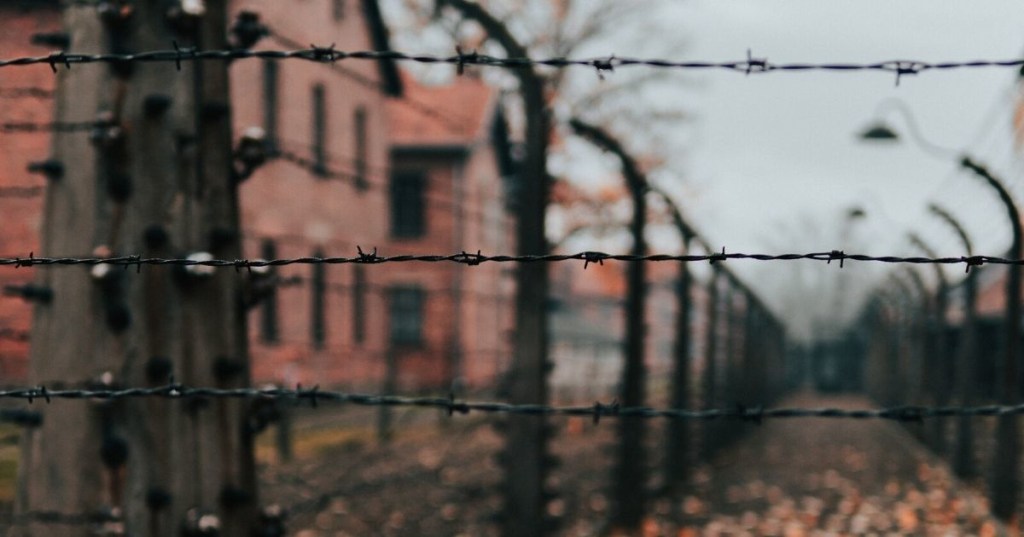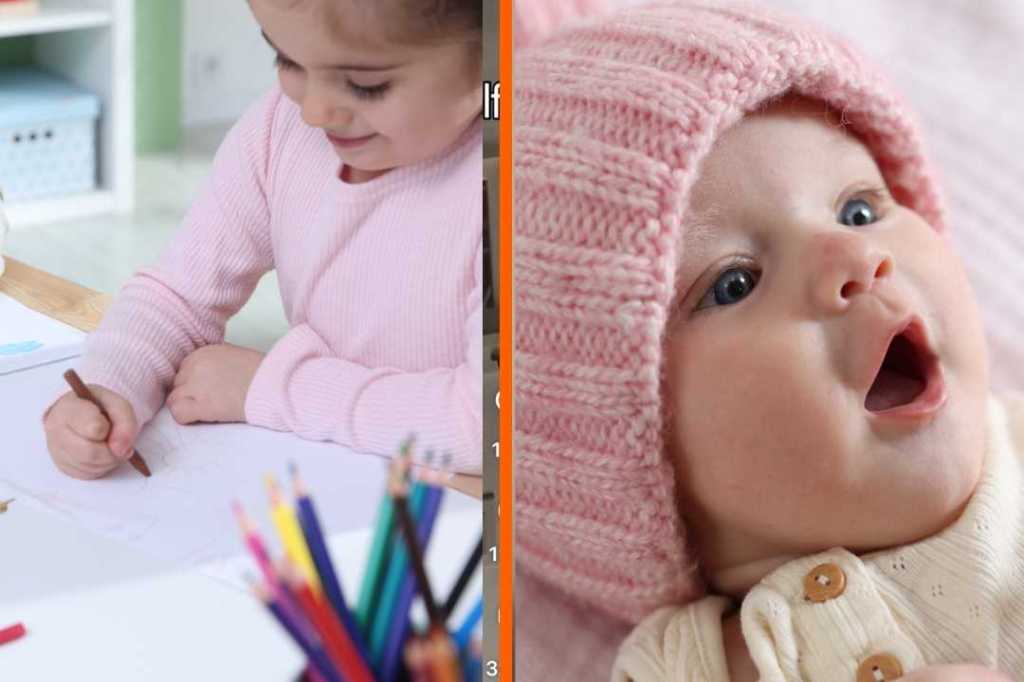From 1940 to 1945, an estimated 1.3 million people were deported to Auschwitz, the largest complex of Nazi concentration camps. More than four out of five of those people—at least 1.1 million people—were murdered there.
On January 27, 1945, Soviet forces liberated the final prisoners from these camps—7,000 people, most of whom were sick or dying. Those of us with a decent public education are familiar with at least a few names of Nazi extermination facilities—Auschwitz, Dachau, Bergen-Belsen—but these are merely a few of the thousands (yes, thousands) of concentration camps, sub camps, and ghettos spread across Europe where Jews and other targets of Hitler’s regime were persecuted, tortured, and killed by the millions.
The scale of the atrocity is unfathomable. Like slavery, the Holocaust is a piece of history where the more you learn the more horrifying it becomes. The inhumane depravity of the perpetrators and the gut-wrenching suffering of the victims defies description. It almost becomes too much for the mind and heart to take in, but it’s vital that we push through that resistance.
The liberation of the Nazi camps marked the end of Hitler’s attempt at ethnic cleansing, and the beginning of humanity’s awareness about how such a heinous chapter in human history took place. The farther we get from that chapter, the more important it is to focus on the lessons it taught us, lest we ignore the signs of history repeating itself.
Lesson 1: Unspeakable evil can be institutionalized on a massive scale
Perhaps the most jarring thing about the Holocaust is how systematized it was. We’re not talking about humans slaying other humans in a fit of rage or a small number of twisted individuals torturing people in a basement someplace—this was a structured, calculated, disciplined, and meticulously planned and carried out effort to exterminate masses of people. The Nazi regime built a well-oiled killing machine the size of half a continent, and it worked exactly as intended. We often cite the number of people killed, but the number of people who partook in the systematic torture and destruction of millions of people is just as harrowing.
It has now come out that Allied forces knew about the mass killing of Jews as early as 1942—three years before the end of the war. And obviously, there were reports from individuals of what was happening from the very beginning. People often ask why more wasn’t done earlier on if people knew, and there are undoubtedly political reasons for that. But we also have the benefit of hindsight in asking that question. I can imagine most people simply disbelieving what was actually taking place because it sounds so utterly unbelievable.
The lesson here is that we have to question our tendency to disbelieve things that sound too horrible to be true. We have evidence that the worst things imaginable on a scale that seems unfathomable are totally plausible.
Lesson 2: Atrocity can happen right under our noses as we go about our daily lives
One thing that struck me as I was reading about the liberation of Auschwitz is that it was a mere 37 miles from Krakow, one of the largest cities in Poland. This camp where an average of 500 people a day were killed, where bodies were piled up like corded wood, where men, women, and children were herded into gas chambers—and it was not that far from a major population center.
And that was just one set of camps. We now know that there were thousands of locations where the Nazis carried out their “final solution,” and it’s not like they always did it way out in the middle of nowhere. A New York Times report on how many more camps there were than scholars originally thought describes what was happening to Jews and marginalized people as the average person went about their daily lives:
“The documented camps include not only ‘killing centers’ but also thousands of forced labor camps, where prisoners manufactured war supplies; prisoner-of-war camps; sites euphemistically named ‘care’ centers, where pregnant women were forced to have abortions or their babies were killed after birth; and brothels, where women were coerced into having sex with German military personnel.”
Whether or not the average person knew the full extent of what was happening is unclear. But surely there were reports. And we know how the average person responds to reports, even today in our own country.
How many news stories have we seen of abuses and inhumane conditions inside U.S. immigrant detention camps? What is our reaction when the United Nations human rights chief visits our detention facilities and comes away “appalled”? It’s a natural tendency to assume things simply can’t be that bad—that’s undoubtedly what millions of Germans thought as well when stories leaked through the propaganda.
Lesson 3: Propaganda works incredibly well
Propaganda has always been a part of governance, as leaders try to sway the general populace to support whatever they are doing. But the Nazis perfected the art and science of propaganda, shamelessly playing on people’s prejudices and fears and flooding the public with mountains of it.
Hermann Goering, one of Hitler’s top political and military figures, explained in an interview late in his life that such manipulation of the masses isn’t even that hard.
“The people can always be brought to the bidding of the leaders,” he said. “That is easy. All you have to do is tell them they are being attacked and denounce the pacifists for lack of patriotism and exposing the country to danger. It works the same way in any country.”
Terrifyingly true, isn’t it? This is why we have to stay vigilant in the face of fear-mongering rhetoric coming from our leaders. When an entire religion or nationality or ethnic group is painted as “dangerous” or “criminal” or “terrorists,” we have to recognize that we are being exposed to the same propaganda used to convince Germans that the Nazis were just trying to protect them. Safety and security are powerful human desires that make it easy to justify horrible acts.
Hitler was also great at playing the victim. While marching through Europe, conquering countries and rounding up millions of innocent people to exterminate, he claimed that Germany was the one under attack. Blatant anti-Semitic rhetoric surely fired up Hitler’s core supporters, but the message to the average German was that this was all being done in the name of protecting the homeland, rather than a quest for a world-dominating master race.
Lesson 4: Most of us are in greater danger of committing a holocaust than being a victim of one
I had to pause when this realization hit me one day. As fairly average white American, I am in the majority in my country. And as strange as it is to say, that means I have more in common with the Germans who either committed heinous acts or capitulated to the Nazis than I do with the Jews and other targets of the Nazi party. That isn’t to say that I would easily go along with mass genocide, but who’s to say that I could fully resist the combination of systematic dehumanization, propaganda, and terrorism that led to the Holocaust? We all like to think we’d be the brave heroes hiding the Anne Franks of the world in our secret cupboards, but the truth is we don’t really know what we would have done.
Check out what this Army Captain who helped liberate a Nazi camp said about his bafflement at what the Germans, “a cultured people” allowed to happen:
“I had studied German literature while an undergraduate at Harvard College. I knew about the culture of the German people and I could not, could not really believe that this was happening in this day and age; that in the twentieth century a cultured people like the Germans would undertake something like this. It was just beyond our imagination… – Captain (Dr.) Philip Leif – 3rd Auxiliary Surgical Group, First Army
Some say that we can gauge what we would have done by examining what we’re doing right now, and perhaps they are right. Are we speaking out against our government’s cruel family separations that traumatize innocent children? Do we justify travel bans from entire countries because we trust that it’s simply our leadership trying to keep us safe? Do we buy into the “Muslims are terrorists” and “undocumented immigrants are criminals” rhetoric?
While it’s wise to be wary of comparing current events to the Holocaust, it’s also wise to recognize that the Holocaust didn’t start with gas chambers. It started with “othering,” scapegoating, and fear-mongering. We have to be watchful not only for signs of atrocity, but for the signs leading up to it.
Lesson 5: Teaching full and accurate history matters
There are people who deny that the Holocaust even happened, which is mind-boggling. But there are far more people who are ignorant to the true horrors of it. Reading first-hand accounts of both the people who survived the camps and those who liberated them is perhaps the best way to begin to grasp the scope of what happened.
One small example is Supreme Allied Commander Dwight D. Eisenhower’s attempt to describe what he saw when he visited Ohrdruf, a sub-camp of Buchenwald:
“The things I saw beggar description. While I was touring the camp I encountered three men who had been inmates and by one ruse or another had made their escape. I interviewed them through an interpreter. The visual evidence and the verbal testimony of starvation, cruelty and bestiality were so overpowering as to leave me a bit sick. In one room, where they were piled up twenty or thirty naked men, killed by starvation, George Patton would not even enter. He said that he would get sick if he did so. I made the visit deliberately, in order to be in a position to give first-hand evidence of these things if ever, in the future, there develops a tendency to charge these allegations merely to ‘propaganda.’”
And of course, the most important narratives to read and try to digest are the accounts of those who survived the camps. Today, 200 survivors of Auschwitz gathered to commemorate the 75th anniversary of its liberation. They warned about the rise in anti-Semitism in the world and how we must not let prejudice and hatred fester. Imagine having to make such a warning seven decades after watching family and friends being slaughtered in front of you.
Let’s use this anniversary as an opportunity to dive deeper into what circumstances and environment enabled millions of people to be killed by one country’s leadership. Let’s learn the lessons the Holocaust has to teach us about human nature and our place in the creation of history. And let’s make darn sure we do everything in our power to fend off the forces that threaten to lead us down a similarly perilous path.
This article originally appeared on 01.27.20

































